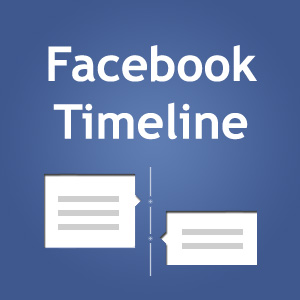 Full confession: I’m not a Facebook fan. To me, it falls into the category of TMI (Too Much Information). Not to mention all the privacy issues (for us non-nerdy types, it’s difficult to stay on top of this stuff — especially when FB seems to change their settings every couple of weeks!). However, I just read an interesting article about Facebook, and it’s latest changes, that has got me thinking.
Full confession: I’m not a Facebook fan. To me, it falls into the category of TMI (Too Much Information). Not to mention all the privacy issues (for us non-nerdy types, it’s difficult to stay on top of this stuff — especially when FB seems to change their settings every couple of weeks!). However, I just read an interesting article about Facebook, and it’s latest changes, that has got me thinking.
Essentially, Facebook is fiddling with its algorithms so that more important stuff (not just the most recent stuff) will show up at the top of the individual’s profile “timeline.” This could be good for social benefit organizations, because when people are passionate enough to hit your “donate now” button, they are passionate enough to want to share this with their friends. So, your organization’s name and a link to your cause will get a lot more air play moving forward.
As I thought about this, I realized it’s not so different from the more “old-fashioned” (tree killing) donor honor rolls in the backs of our Annual Reports or the donor walls in our lobbies. When asked, a majority of people often say this recognition — or shall we say this “sharing” of their behavior — is not that important to them. But… a sizable minority has always cared about this. Were this not the case, we’d have given up on giving societies and giving levels many moons ago.
Here’s what the V.P. of Facebook Causes had to say: “We believe altruism is ultimately a social exercise… and it’s the kind of activity that people want to share with others and celebrate with other people.” Reading this was an “aha” moment for me. Of course! The very definition of altruism is that it is a helping behavior motivated by a selfless concern for the welfare of others. And the definition of social is that it is characterized by friendly companionship or relations. So even though the helping behavior may initially be motivated by selflessness, it quickly takes on a character of relationship and friendship building. And why? Because this is the true heart of philanthropy, which is defined as the love of humankind.
Love, of course, is an intense feeling that arises out of a sense of kinship or personal ties. So, when you think about it this way, Facebook is really about philanthropy. I may be going out on a limb here, but it certainly explains why this phenomenon has become more popular than the oft-quoted “sliced bread”. We cannot live by bread alone. We require human connection and community.
We who work and volunteer and support the public benefit sector now require Facebook. I can’t quite say I’m a true fan yet, but I’m understanding its value as a tool for expressing our values, fulfilling our missions and reaching our visions for a better world.






